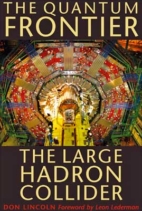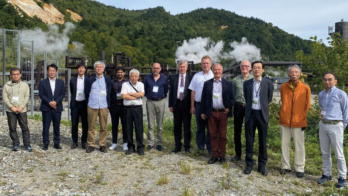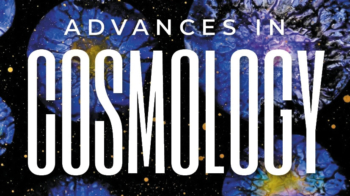by Don Lincoln, foreword by Leon Lederman, Johns Hopkins University Press. Hardback ISBN 9780801891441, $25.

As I write this review, in less than one week’s time I will be starting the second year of my physics-undergraduate degree at McGill University, Montreal. During the past summer I was granted the chance to spend time at CERN, an aspiration for every young physicist. Working as a student journalist for the CERN Bulletin, I was able to get away with asking enough questions to drive everyone mad and learnt a great deal about the various experiments currently (and previously) being conducted at CERN, in particular at the LHC. However, even after two months of constant probing, the LHC still held many more secrets and fantastic intricacies that I sought to understand.
It was only during my final weeks that the answers to these questions were found, by reading The Quantum Frontier. Don Lincoln’s playful, energetic style took me from the fundamentals of contemporary physics through to the extremely complex and sophisticated guts of the LHC experiments, touching on everything from the Earth’s “inevitable” destruction by black holes to speculated future physics experiments in a post-LHC era.
Cracking it open for the first time, I was worried that a book taking under 200 pages to cover such an ambitious topic would be riddled with sterile facts listed one after the other. But the contrary is what I found. Lincoln starts by addressing the obvious misconception that is in the watching world’s mind: will the LHC destroy the planet and all of us with it? Tackling this issue first with an overview of basic material often covered in high-school science classes (the components of the atom, etc.), Lincoln goes on to peer deeper and deeper into the world of particle physics, laying out the basic building blocks of matter and what the LHC hopes to discover.
As a student of the subject, I found that some of the material was familiar, while a great deal of the new ideas and theories were elegantly explained. Lincoln kept me happily engaged with poignant and often funny analogies that facilitated the explanations and catered for a concise understanding. Like any scientifically relevant book, it uses diagrams and graphs to elaborate ideas, but their inclusion is not daunting.
Being a particle physicist himself, Lincoln gives us a chance to see the world from such a perspective and conveys the excitement and awe that is experienced working in this field.





